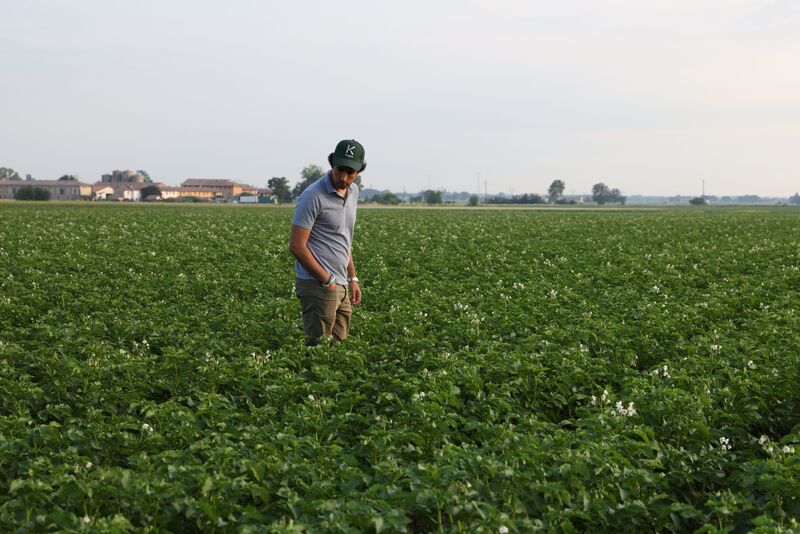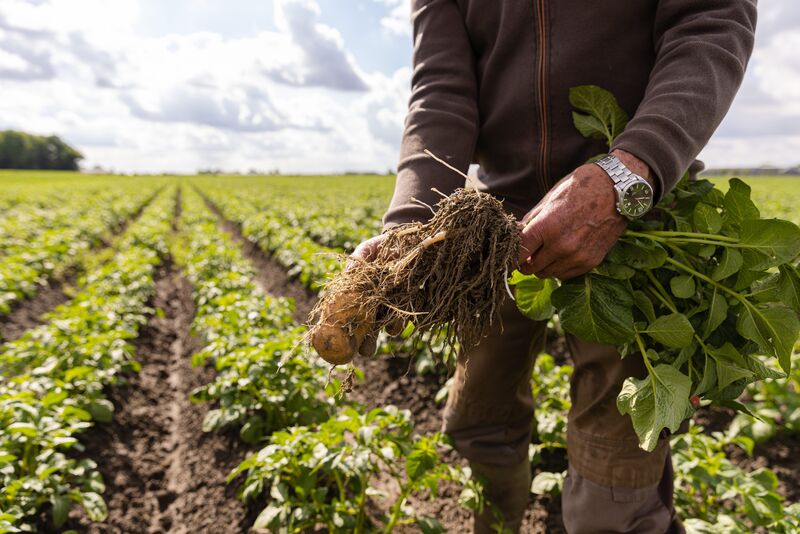
A combination of a biological fungicide and beneficial nematodes is proving to be the answer for many potato growers in Europe. Recent trials using Trianum (Trichoderma harzianum) in combination with Casea (Steinernema carpocapsae) have shown positive results in controlling two soilborne diseases and wireworm control (several species).
Biological control vs. chemical control of soil borne diseases
‘In trials conducted with potato farmers in Italy and Spain, we are getting similar and sometimes better results than the chemical pesticide control,’ says Global product manager, Cyrille Verdun. ‘The nematodes control the pests and the natural fungicide controls the diseases. Together they have a winning act!’ Cyrille points out that these are beneficial nematodes, a sub group of the nematode group that only parasitize and kill insects. They are totally different organisms to the notorious parasitic nematodes that attack the plant’s root systems.
Trials in the biocontrol of pests and diseases in potatoes got underway a few years ago in both Italy and Spain. ‘We focused on two soilborne diseases – Rhizoctonia and Sclerotinia – and introduced Trianum-P and Trianum-G from the time of seeding,’ Product management lead, Paolo Banzato explains. ‘Both formulations of our biofungicides performed so well in these trials that we are now exploiting Trianum commercially in these two countries. We are now working on expanding the registration to introduce this natural fungicide to potato producers in Central Europe for healthier plants and a more productive yield.’
Trianum-P and -G are easy to integrate in the conventional irrigation systems used by farmers. Trianum-P is a soluble granule formulation that can be easily dissolved in water and applied with existing spraying and irrigation equipment; Trianum-G is a granular product that can be applied with microgranulators often integrated in sowing machineries.

Biological control vs. chemical control of wireworms
Beneficial nematodes were introduced for the control of persistent wireworms in Italy with success according to Cyrille. ‘The wireworm pressure is often high and difficult to detect since it is a soilborne pest. Therefore, damage can start anytime and nematodes need to be applied from planting through to harvest. This means multiple applications – little and often.’ Most of the chemical solutions for wireworms have been banned and it has become a major problem. Moreover, conventional pesticides work poorly on the soil. Our nematodes have the added benefit of being able to move in the soil profile and are able to actively hunt for pests.
Because beneficial nematodes are applied through conventional irrigations systems, they are easy to use and compatible with other IPM systems. Our nematodes come in a long-storage, biodegradable carrier in a formulation that is easy to dilute and safe to handle.
‘Using beneficial nematodes against wireworms is a pretty new application, but we are confident that it has a positive impact on the potato production,’ Cyrille adds. ‘We hope to introduce it to potato and seed potato growers in France, Belgium and the Netherlands soon. Koppert is becoming a serious player in agriculture and replacing many chemical agents in several outdoor crops!’